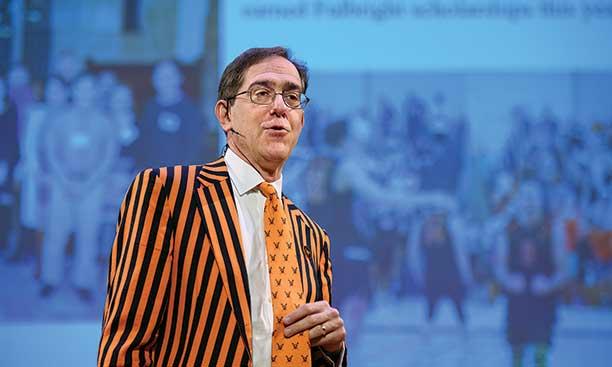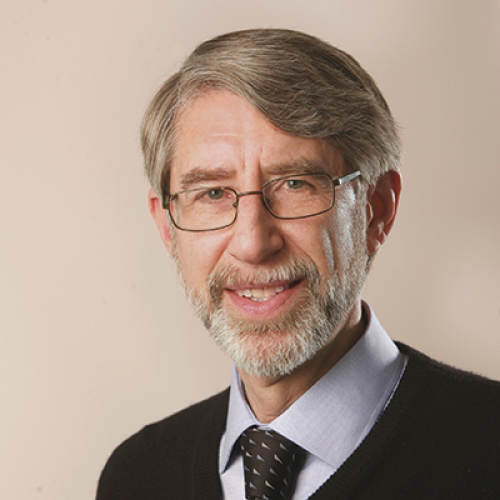After news of the national college admissions scandal became public, Princeton retained an outside law firm to review “what went on in [University] admissions, and what went on in athletics,” President Eisgruber ’83 said at his annual Reunions conversation with alumni.
While noting that Princeton had not figured in the scandal to date, Eisgruber said the University takes it “incredibly seriously,” adding that the law firm offered some suggestions: “You’re looking for controls — what you’re trying to do is that you’re never reliant on a single individual.”
The discussion, held the Saturday morning of Reunions, covered a range of topics, from the federal tax on college endowments, to financial aid, to new construction projects on the drawing board, to the question of whether Princeton should divest from oil and gas companies, as some students and alumni have proposed.
Admission issues often come up in Eisgruber’s Reunions conversation; this year, news of the national scandal pushed those questions to the forefront. Princeton is doing everything it can to maintain the integrity of its processes, Eisgruber said, but “there are always going to be people who try to cheat where there are high stakes involved.” He noted that a New York Times investigation of the T.M. Landry school in Louisiana, a charter school whose students are predominantly black and working-class, also found fraud around college applications and “indicated that one of the students had been admitted at Princeton.”
In the wake of the “Varsity Blues” scandal, he said, some have suggested that “this means you should admit fewer athletes, that you should admit fewer legacies.” But Eisgruber said children of alumni “are every bit as qualified on any kind of metric you want to look at as other students coming to Princeton, and they perform here the same as other students and they perform the same after they graduate.”
The University is committed to increasing the number of low- and middle-income students, he said, noting that nearly a quarter of incoming freshmen are Pell Grant recipients. But he said legacies continue to be “an important part” of assembling the student body.
Asked why the University continues to invest in oil, gas, and coal companies, Eisgruber said Princeton has set “a really tough standard” for divestment that requires “dissociation” on the basis that “a moral wrong” has occurred.
Saying that “there are reasonable disputes in our society about how we work our way toward a sustainable energy future,” he said Princeton research must “come at that from all sides” without the University taking a political position.
“We could not dissociate from the energy companies ... we work directly with them through research that we do,” he said, noting that a Princeton Environmental Institute partnership with BP is exploring carbon-mitigation efforts “to create a sustainable world.”
Thanks to Princeton’s financial-aid policy that relies on grants instead of loans, Eisgruber said, about 83 percent of seniors graduate debt-free; the remainder have an average debt of $7,000 to $8,000. Asked by an alumnus what percentage of undergraduates have parents who have borrowed to pay college expenses, Eisgruber said the University doesn’t have that information.
He also touched on these topics:
He expects that the recently enacted federal tax on endowment income of Princeton and a small number of other colleges “will affect our ability to seize opportunities over time,” but it should not affect the timing of already-announced projects unless there is a major economic downturn.
The new academic calendar approved by the faculty, which takes effect in 2020–21, will move Reunions and Commencement a week earlier in May, Eisgruber noted. The new schedule will move fall-term exams to before the winter break and will provide time for a two-week, non-credit wintersession in January.



